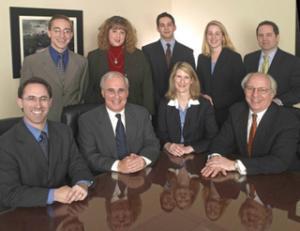
Cona Elder Law (Cona Elder Law,) an elder care and estate planning law firm invites seniors, baby boomers and their families to call in and speak directly with an elder law attorney on how best to secure their future. This year the hotline will be held on Monday, June 25 between 9am and 7pm. The hotline call-in number is 631.390.5000.
“It’s certainly a day like none other at the firm, as you can imagine.” says Jack Genser of Cona Elder Law. With over 300 calls a day, the office is quite literally, buzzing. We all arrive Monday morning ready to go. Some of us wear sweat pants and sneakers so we can sprint toward ringing phones. We’ve perfected the art of keeping the coffee and calls flowing. It’s terrifically rewarding for everyone at the firm.”
“As the first of the baby boomer generation approaches their 60’s, older Americans have become the fastest-growing segment of society and this trend will grow in years to come.” says Jennifer Cona, partner of Cona Elder Law. “Baby boomers are known as the sandwich generation. They are raising children and caring for their parents at the same time. As a result, they have made plans for their parents but may have not made plans for themselves. It’s a generation that’s unprepared for the inevitability of aging, feeling eternally young.”
Adults of all ages are invited to call the Cona Elder Law hotline with questions they may have regarding elder care and estate planning. Some call about themselves or their families. Neighbors even call out of concern for other neighbors. Some callers are caring for someone chronically ill and call about caregiver agreements. Some call with questions about how to choose a nursing home. Others have a beneficiary who has died or taken ill. Some may have welcomed a new child or children into the family or the structure of their assets has changed and the list goes on.
According to Ms. Cona, the laws can change rapidly, particularly with respect to Medicaid.
She says there is so much misinformation and confusion about estate planning and Medicaid planning and sorting through it can be can be a daunting task. Ms. Cona says it’s important now more than ever to take the steps to secure your family’s future and it’s particularly imperative for women.
According to the U.S Department of Health and Human Services, older women live longer, develop more chronic conditions and experience a higher level of functional limitations than men. In 2005, there were 25 million women aged 65 years and over living in the United States, compared to 15 million men. A larger percentage of older women are living alone because women generally marry men older than themselves and men have lower average life expectancies. Women aged 65 years and over are more likely to be widowed (43 percent) than older men (13 percent.) The good news is that overall life expectancy continues to improve and the gap between men and women is narrowing.
By dialing the Cona Elder Law Hotline, callers will be able to speak with an elder law and estate planning attorney who can offer guidance on such issues as asset protection planning, changes in Medicaid laws, estate planning, wills and trusts, health care proxies, special needs & disability planning, guardianships and so forth.
The Cona Elder Law Hotline provides a place to find answers without any obligation.” says Mr. Genser. “No one is rushed off the phone. We take the time to answer callers’ questions as completely as we can with the understanding that each individual case is unique because our families are unique. We also provide callers with a complimentary copy of our booklet, Your Guide to Elder & Estate Planning.”
Established in 1968, Cona Elder Law is an Elder Law and Trusts and Estates based in Long Island, New York. The firm is recognized for its advocacy in the areas of asset protection, Medicaid planning, disability planning, guardianships, estate and tax planning, wealth transfer strategies, estate and trust administration and estate litigation. Cona Elder Law offers expertise in matters of concern to seniors and their families, including health-care, long-term care, housing, employment & retirement.

